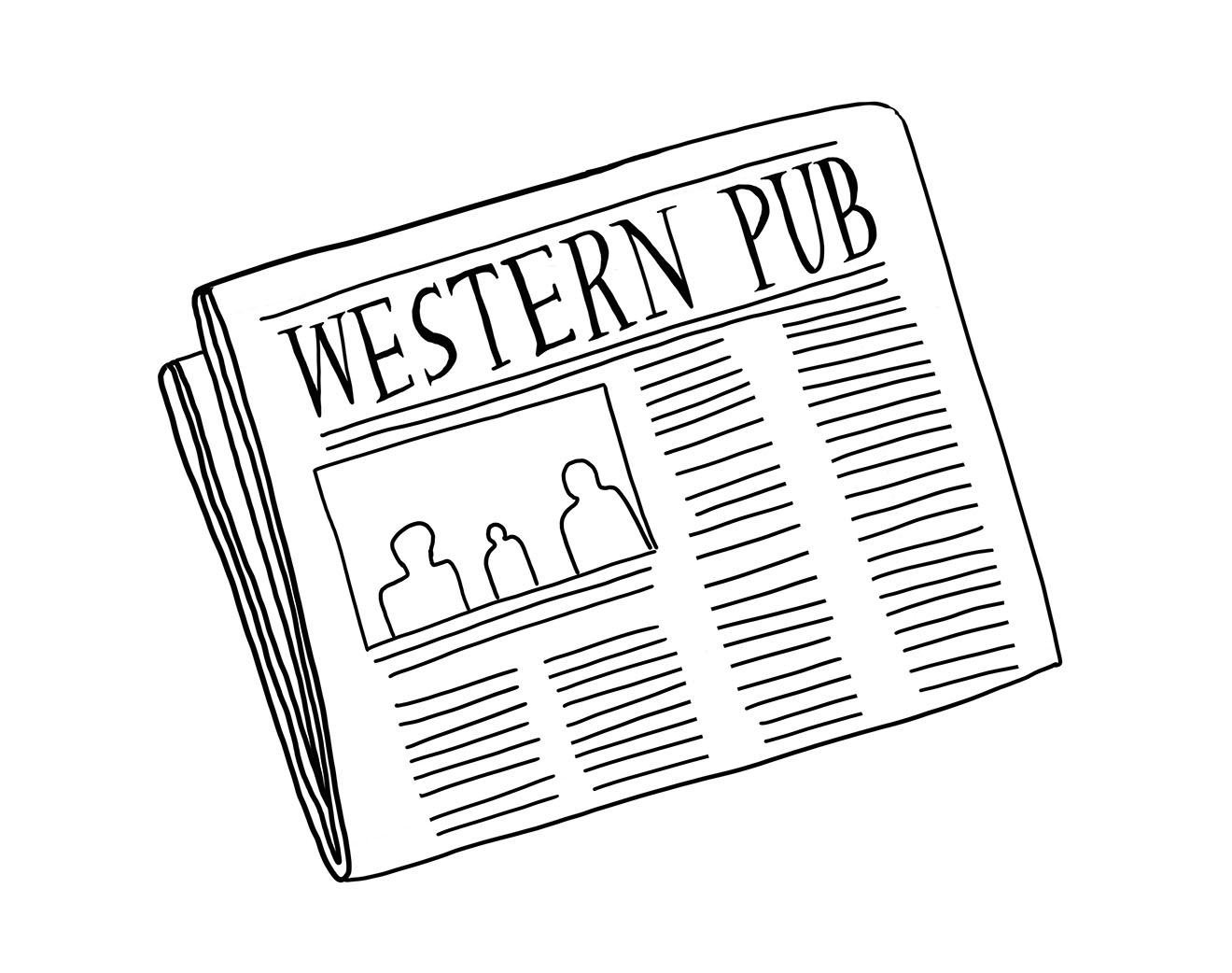Illustration by Soleil de Zwart//AS Review
By Jacob Carver
There’s an interesting dichotomy in journalism at Western. Students who choose to study journalism get the chance to learn and do work that affects a campus of more than 16,000 people. But, we often reach out for lofty goals. We take stories that could make incredible change on this campus, but come up short when our own hubris catches up with us and we realize we have bitten off more than we can chew.
I will admit, that has been me for a lot of my three years of being a student journalist on this campus. I’ve chased stories that stop in dead-ends, roadblocks or frankly, just no road at all. I’ve also witnessed my friends in the department do the same thing and I’ve noticed the same expression on their face when a potentially powerful story falls through. That expression, in my mind, can only be summed in two words.
It sucks.
We want to tell your stories. We want to shine a light into dark places and make this campus into a place where everyone can feel safe and at home. We want to hold administration accountable for their actions. At least, that’s why I came to school here.
The problem is not with the desire to tell your stories, it’s with the stories we decide to write. In my time with the Review, I’ve noticed a pattern of how we pick stories. We rely on our writers to provide ideas based on what’s happening in the Western community. Although I can’t speak for them, I believe The Western Front operates in a similar way, just with more editors and more writers all adding their ideas. It is up to the head editors to decide what gets written, what gets edited and what eventually ends up in the paper. It’s our decision on what goes into our papers, even though we try as hard as we can to tell your stories.
And if I’m being completely honest, the stories that have come out of Western student journalists are incredible. We have seen professors exposed for heinous acts, students’ voices raised against the administration and acts of love, selflessness and kindness shown through the work of very talented journalists. But I think we can do even more. I think we can give that decision of what goes in the paper back to the students.
I’ve struggled with a nagging question that has left a bad taste in my mouth for months. It’s made me reconsider journalism altogether and leave a career path that I thought I wanted since I was 14.
Why are student journalists, such as myself, telling stories that we think are important and not telling the stories that students want and need to hear?
We learn how to be hyper-local journalists, but never put it into practice. Hyper-local journalists know people’s stories inside and out. They take the time to get a cup of coffee with their source and really get to know what their needs as media consumers are. They make sure every detail they write is correct because their source could turn out to be their neighbor or their bar keeper or their teacher. Instead of doing the bare minimum of asking questions that just get more information into the stories, they dig into how the story specifically affects the one source before moving on.
This is my last paper as Editor-in-Chief. And I’ll be honest with you, I’m ready to leave. I love the Review, but it’s definitely put me in a place that has made me cynical about journalism on this campus and beyond.
But this place, this campus, this community is my home. The Review has been my home. And I would much rather leave this place with a challenge in my voice than go with a whisper.
Let’s start being hyper-local about Western. Let’s take the time to get to know the people we write stories about. Let’s take the time to get their name, their pronouns, their information down right and go back if it’s not. Let’s invite people who want their voice hear to shout from the rooftops and be the people who lift them up to do that. Let’s shine a spotlight on incredible communities that don’t get a spotlight often enough.
Instead of going to school, let’s go to school together.

